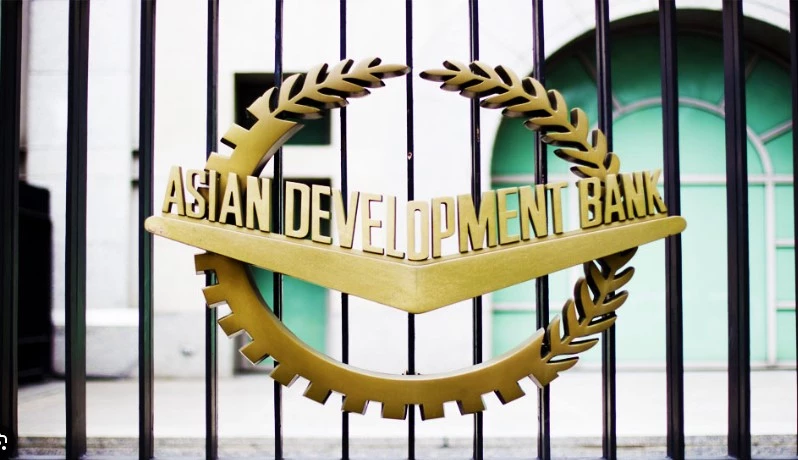ADB revises Pakistan’s economic growth in 2023-24, says inflation will ease

Stay tuned with 24 News HD Android App

Pakistan’s gross domestic product (GDP) growth is projected to recover modestly to 1.9% in fiscal year 2023-24 from 0.3% in FY2023, with price pressures remaining elevated, the Asian Development Bank (ADB) said in a report released on Wednesday, reported 24NewsHD TV channel.
The ADB outlook has been revised slightly downwards from the 2% growth rate it saw in April. However, the Bank also warned that significant downside risks to Pakistan’s economic outlook in FY24 remain, including from global price shocks and slower global growth.
According to the Asian Development Outlook (ADO) September 2023, Pakistan’s adherence to an economic adjustment programme through April 2024 will be critical to restoring macroeconomic stability and the gradual recovery of the country’s growth.

ADB Country Director for Pakistan Yong Ye said “Pakistan’s economic prospects are closely tied to the steadfast and consistent implementation of policy reforms to stabilize the economy and rebuild fiscal and external buffers.”
“Greater fiscal discipline, a market-determined exchange rate, and speedier progress on reforms in the energy sector and state-owned enterprises are key to reviving economic growth and protecting social and development spending.”
#ADO2023 September is out! 📊
— Albert Park (@ADBChiefEcon) September 20, 2023
Read ADB’s latest economic forecasts and insights for developing economies in Asia and the Pacific. ⬇️https://t.co/jjnocCStQA pic.twitter.com/2HcxSmtKmd
In FY23, Pakistan’s economy remained engulfed in various challenges including severe floods, global price shocks, and political instability, causing growth to weaken and inflation to rise.
As per the ADO, the implementation of the economic adjustment programme and a smooth general election in FY2024 are expected to boost confidence, while easing import controls is likely to support investment.
“Favourable weather conditions and the government’s relief package of free seeds, subsidised credit, and fertilisers are expected to support a recovery in agriculture. This, in turn, will help the industry, which will also benefit from the increased availability of critical imports,” the report said.
ADB expects inflation in Pakistan to ease to 25% in FY2024 from 29.2% in FY2023, as base-year effects set in, food supply normalises, and inflation expectations moderate. “However, sharp increases in energy tariffs under the economic adjustment programme, and the continued weakening of the rupee will keep inflationary pressures elevated,” it noted.
Bank warns 'intensified' risks for developing Asia
Developing Asia faces "intensified" risks from China's troubled property sector and high interest rates around the world, the Asian Development Bank said Wednesday, as it trimmed its regional growth expectations.
Gross domestic product is forecast to expand by 4.7 percent this year, the Manila-based lender said, slightly lower than its April estimate of 4.8 percent.
It was faster than the 4.3 percent growth recorded last year.
Developing Asia refers to the multilateral lender's 46 emerging member economies, stretching from Kazakhstan in Central Asia to the Cook Islands in the Pacific.
"Risks to the outlook have intensified," the bank said in its latest update of forecasts for this year and next, noting weaknesses in China's property sector could "hold back regional growth".
Other challenges included high interest rates and threats to food security from the El Nino weather phenomenon and export restrictions imposed by some countries.
Inflation is also expected to drop to 3.6 percent this year from 4.4 percent last year, the ADB said, pointing to the slowdown in China.
The bank slashed its China inflation estimate to 0.7 percent for this year, from its April forecast of 2.2 percent.
There was a burst of consumer exuberance after China, the world's second-largest economy, lifted its strict zero-Covid policies late last year.
But weak consumption, a crisis in the massive property sector and soft demand for China's exports has complicated the recovery.
Official figures show China briefly slipped into deflation in July for the first time in over two years, with prices falling 0.3 percent, year on year. It rebounded the following month.
With input from AFP.
